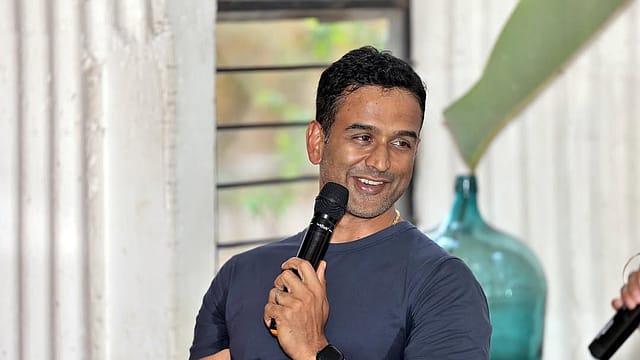‘Costs are the first hurdle’: Nithin Kamath explains how Zerodha’s gangbuster move saved up to ₹20,000 crore for retail investors
ADVERTISEMENT

Zerodha co-founder and CEO Nithin Kamath is optimistic about the impact of low-cost trading. In a post on X, he highlighted how high trading costs can significantly erode a retail investor's profits, especially when coupled with capital gains tax. Acknowledging the role Zerodha has played in reducing this burden, the 45-year-old entrepreneur claimed that traders using the platform have saved between ₹2,000 crore and ₹20,000 crore in equity delivery brokerage over the past decade.
How, one might ask. And Kamath, in a detailed blog post, explained the process. To begin with, before Zerodha, every platform had to charge a brokerage or trading fee. It was unthinkable for a platform to waive it off completely. But that is what Zerodha did. Back in December 2015, Zerodha made a radical move that would redefine its identity in the Indian brokerage landscape—it waived brokerage fees for equity delivery trades. Until then, the platform used to charge the lower of 0.1% or ₹20 per trade. This decision, as Nithin Kamath explains, was an effort to move away from being seen as merely a broker for speculation.
“A lot of people (sometimes even I) wondered if this would just be a short-term experiment or if we could go on like this forever. Well, it’s almost 10 years since, and even though there is some pressure with the options business going down significantly in the last six months, we have been able to continue offering zero brokerage,” Kamath noted.
The True Meaning of Savings
In a detailed analysis, Kamath calculated the brokerage savings for its customers over the last nine years through Zerodha. If the company had continued charging 0.1% or ₹20 per trade—or even if customers were paying the market standard of 0.3% with no cap—investors would have collectively spent anywhere between ₹2,195 crore and a staggering ₹21,305 crore in brokerage fees.
A further breakdown of these savings can be broken down into three categories:
0.3% with no cap: Investors have saved approximately ₹21,305 crore in brokerage fees since Zerodha’s decision.
0.1% with no cap: Savings amount to ₹7,101 crore.
0.1% or ₹20 per trade: Even with this capped rate, investors have saved around ₹2,195 crore.
The impact is evident, according to Kamath. In 2024 alone, investors saved ₹7,126.8 crore under the 0.3% no-cap scenario, ₹2,375.6 crore under the 0.1% scenario, and ₹624.8 crore under the capped 0.1% or ₹20 model.
Why Brokerage Costs Matter
Kamath argues that one of the biggest mistakes traders and investors make is ignoring the effect of brokerage fees on their returns. “Costs are one of the biggest drags on realised returns. This ignorance of costs is because of percentage blindness—a brokerage of 0.5% seems small, so most people tend to ignore it,” he explained.
The irony, he adds, is that many traders don’t even make enough returns to recover their transaction costs. Frequent trading can lead to substantial brokerage outflows, ultimately eating into profitability.
“If your strategy involves just a few transactions a month, the costs quickly add up. Costs are the first hurdle to profitability. So, being conscious of costs can easily increase the odds of your profitability by a non-trivial margin,” Kamath advises.
ETFs and the Cost Trap
Another interesting paradox Kamath points out is how some investors, despite understanding the benefits of low-cost ETFs and index funds, still end up paying high brokerage fees.
“The whole point of ETFs is to save costs, but the brokerage on such transactions is already 1-5x the expense ratio of these ETFs! This is just percentage blindness in action,” he says.
Zerodha’s asset management company (AMC) has a strong focus on low-cost ETFs and index funds, in line with its philosophy of cost-efficient investing, claimed Kamath.
A Decade of Disruption
Zerodha, which derives its name from ‘Zero’ and ‘Rodha’ (barriers in Sanskrit), has transformed the investing landscape in India. While many initially doubted whether the zero-brokerage model could be sustainable, the company has stayed committed to its vision, pointed out Kamath.
Nearly a decade later, according to Kamath, the data speaks for itself: investors have saved thousands of crores, costs are more transparent, and the conversation around brokerage fees has fundamentally shifted.
As Kamath aptly puts it before signing off: “So keep an eye on your costs!”